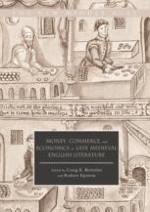2018 | OriginalPaper | Buchkapitel
10. “Money Earned; Money Won”: The Problem of Labor Pricing in Gower’s “Tale of the King and the Steward’s Wife”
verfasst von : Craig E. Bertolet
Erschienen in: Money, Commerce, and Economics in Late Medieval English Literature
Aktivieren Sie unsere intelligente Suche, um passende Fachinhalte oder Patente zu finden.
Wählen Sie Textabschnitte aus um mit Künstlicher Intelligenz passenden Patente zu finden. powered by
Markieren Sie Textabschnitte, um KI-gestützt weitere passende Inhalte zu finden. powered by
